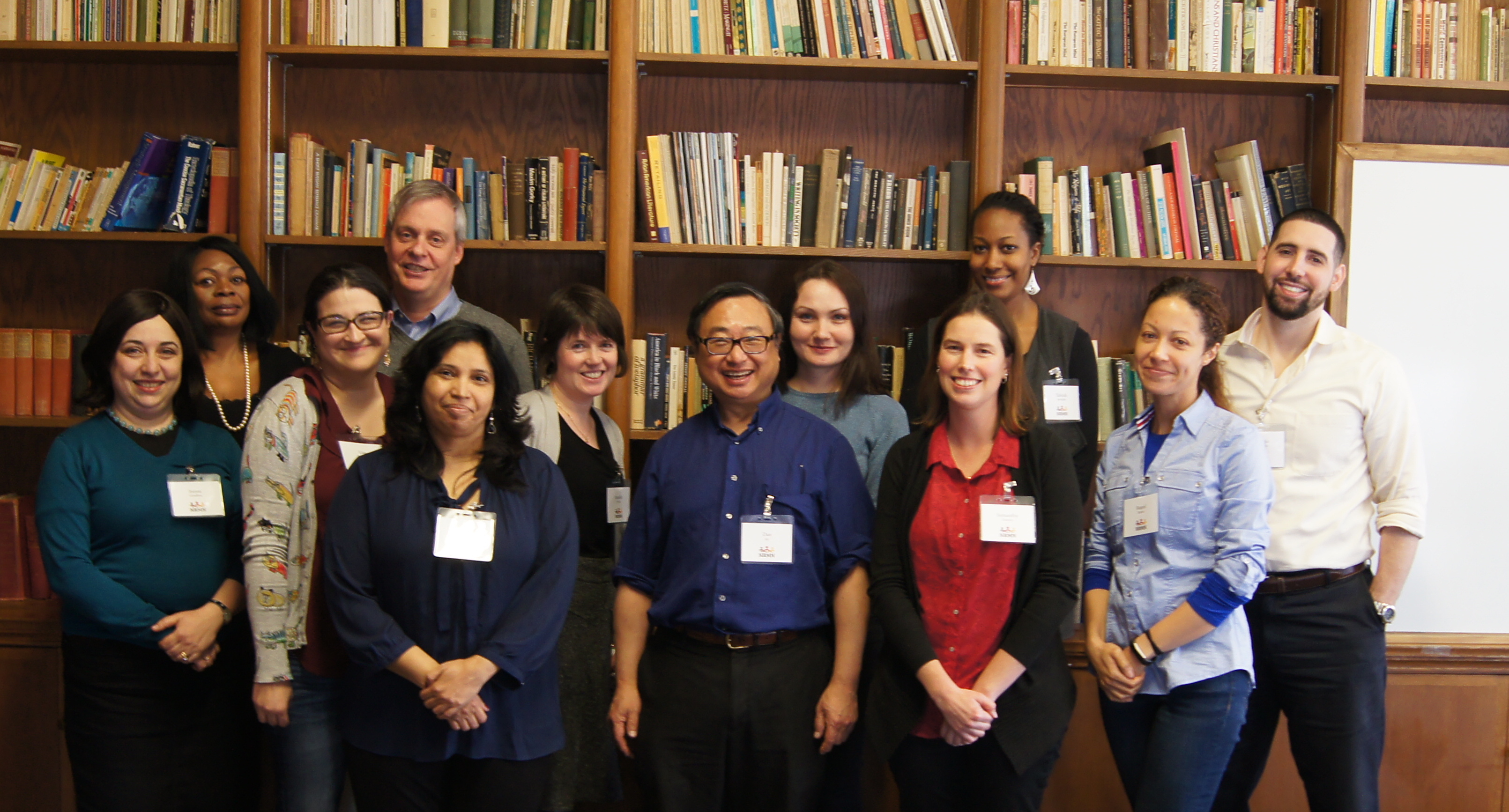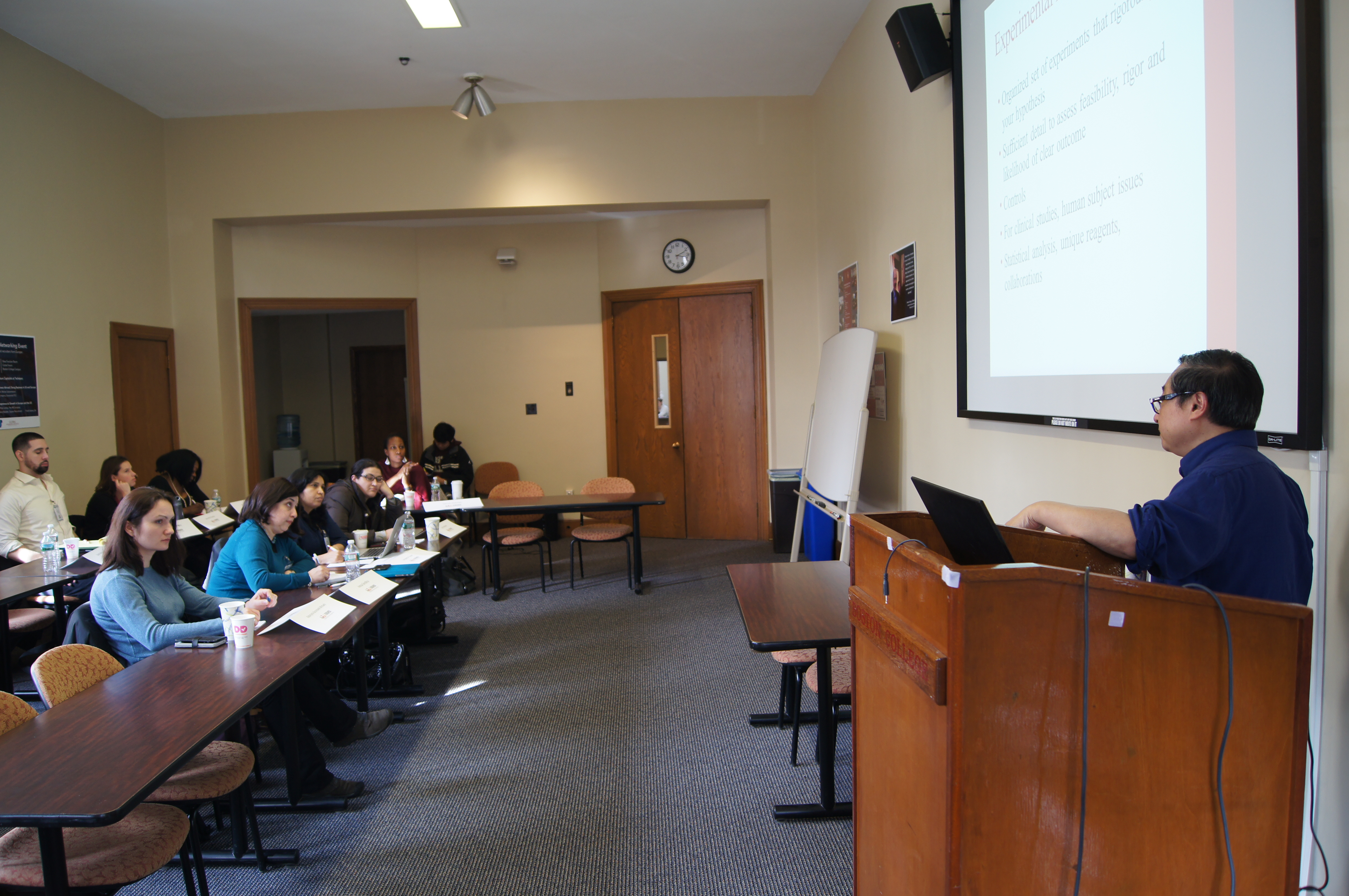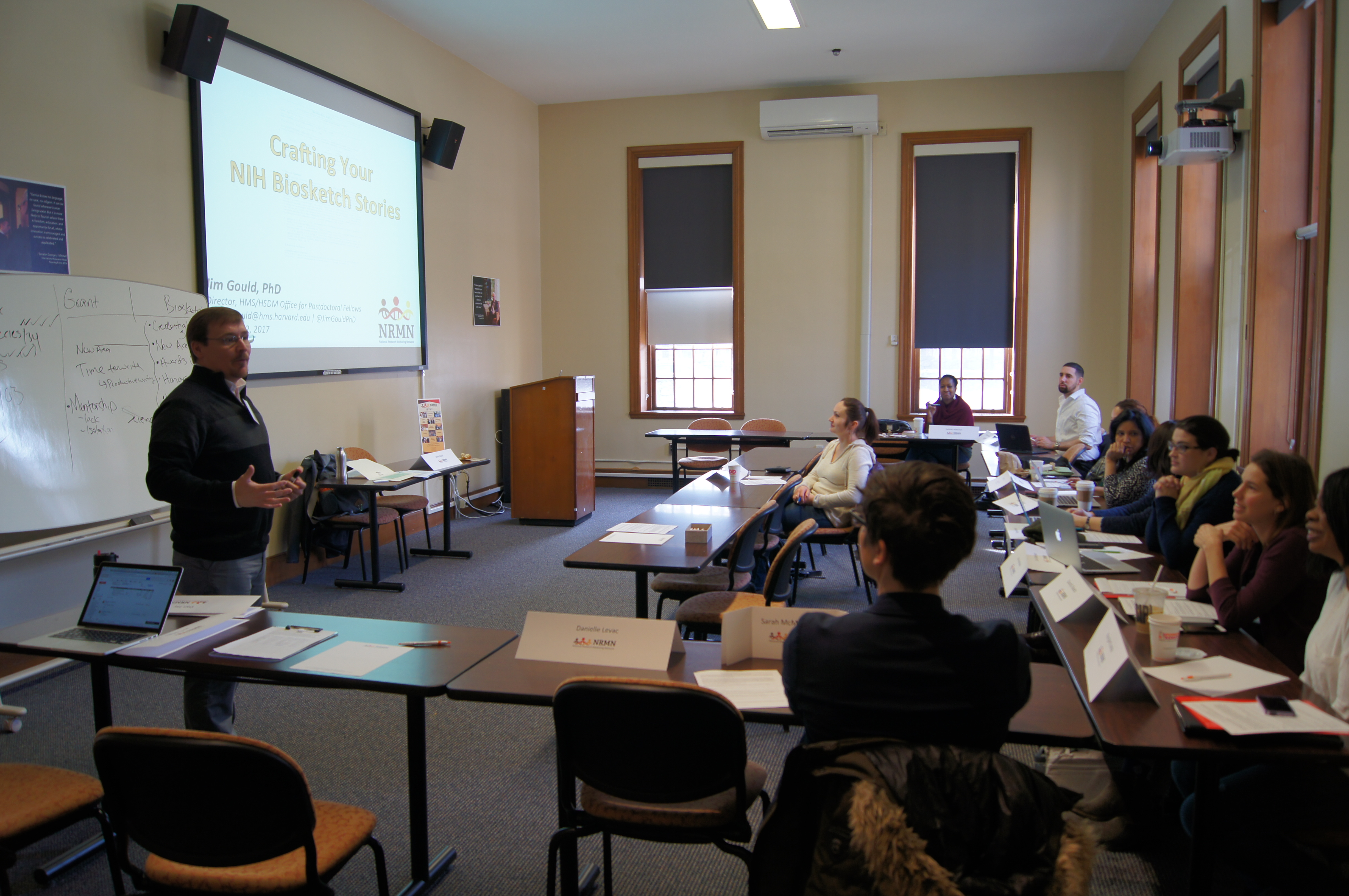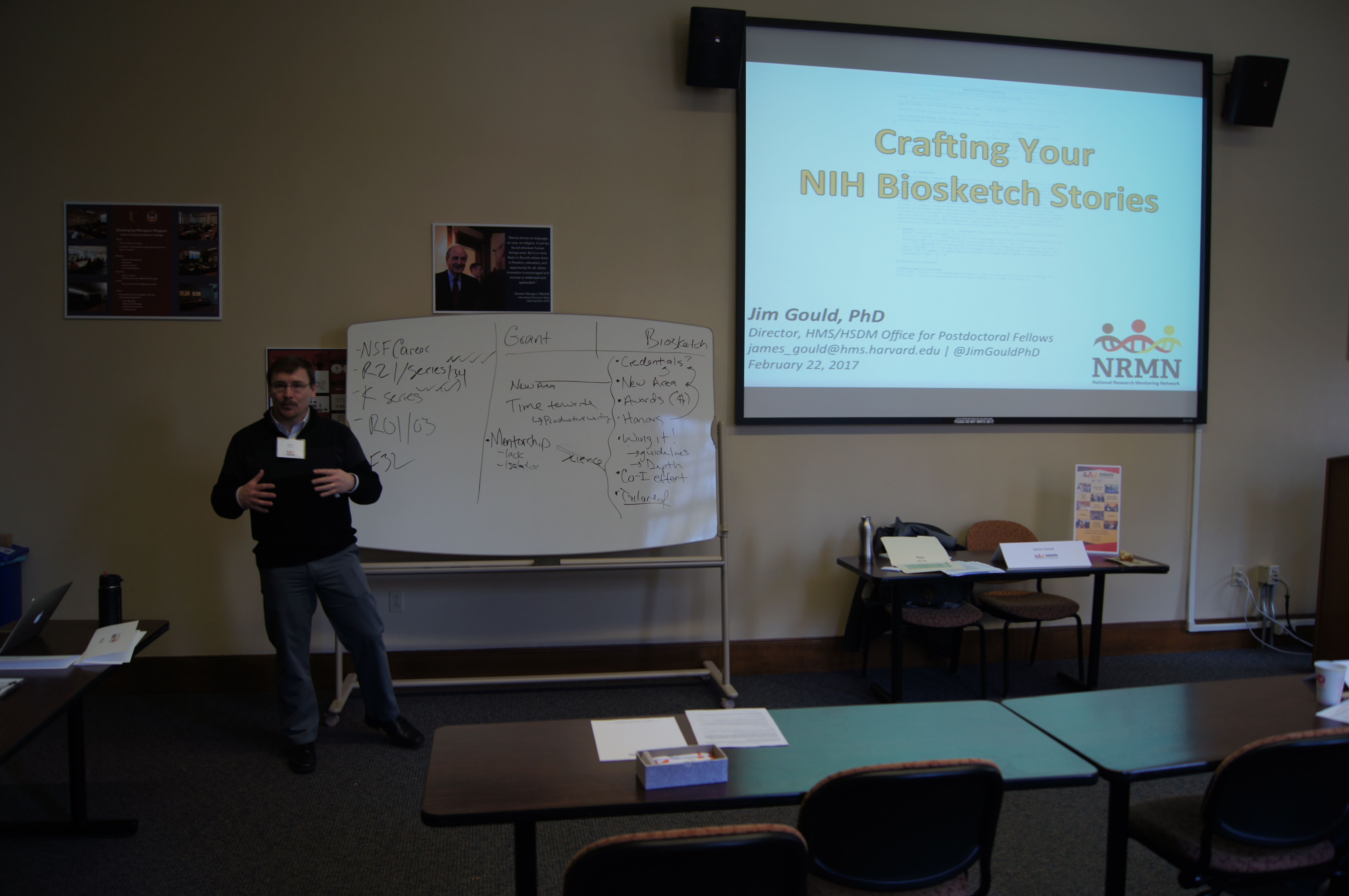by Gaoyuan Liu
On Tuesday and Wednesday, February 21st-22nd, NRMN hosted the year’s kickoff grant writing coaching session for 11 early-stage career investigators selected to participate in a grant writing coaching group led through the NRMN Center at Boston College. The curriculum, which follows the Northwestern University Grant Writing model, was pioneered by Dr. Rick McGee during the course of his work at the Mayo Clinic College of Medicine, the NIH intramural program, and most recently Northwestern University.
The program is designed to guide postdocs and junior faculty members in developing the skills to write successful NIH-style proposals. Following the kickoff, mentees will regularly meet up with head coach Dr. Daniel Jay to review progress and receive feedback on in-progress grant proposals for two to four months depending on the needs of the cohort.

Dr. Jay, who hails from the Tufts Sackler School of Graduate Biomedical Sciences, is a Professor of Developmental, Molecular, and Chemical Biology. This marks the second year that Dr. Jay has led the coaching group—with last year’s having been held at the Sackler School—as well as the second time that the Northwestern coaching model has been offered in NRMN’s Northeast Regional Hub. Joining him in this kickoff session was Dr. Karl Munger, a colleague of his at Sackler who studies the molecular mechanisms behind human papillomavirus (HPV).
DAY 1 OF 2
Day one began with opening regards from NRMN Executive Director Dr. Rafael Luna, who introduced NRMN to all the mentees. Dr. Jay lectured on the nature of the grant review process, starting from a high level overview and then providing a specific description of the five criteria that determine impact scores: significance, investigators, innovation, approach, and environment. The theme of the day was focused on how to best tailor each grant application and Specific Aims Page to key indicators of success.
Following a lunch break, Dr. Munger discussed the difference between NIH K series and R series awards. K series grants, designated for incipient scientists, are alternatively referred to as Career Development Awards. These, as noted by Munger, provide support for postdoctoral fellows and faculty level candidates who are looking to get their foot in the door as opposed to R awards which serve experienced researchers.
 Mentees in attendance learned to write a Specific Aims Page as the skeleton of the entire grant, following step by step the guidelines to a successful proposal including every section including rationale, justification and feasibility, research design, expected outcomes, potential problems and alternative strategies, and future directions.
Mentees in attendance learned to write a Specific Aims Page as the skeleton of the entire grant, following step by step the guidelines to a successful proposal including every section including rationale, justification and feasibility, research design, expected outcomes, potential problems and alternative strategies, and future directions.
For K series grants, applicants must designate a mentor to sponsor the research.
“They want to see that you have someone who can guide you and help you along the learning curve. A mentor is crucial to your success in so many ways,” said Dr. Jay.
Following the lecture, mentees broke off into pairs in order to evaluate each others’ grants and provide constructive feedback to end the day.
DAY 2 OF 2, AND BEYOND
 The following day, Dr. James Gould delivered a talk on crafting a compelling Biosketch, a short one or two-paragraph summary of a scientist’s character, life, and achievements. Dr. Gould is the director of the Harvard Medical School Office for Postdoctoral Fellows and specializes in professional development for early career scientists. The day proceeded with another round of peer review, ending off with a recap of the days’ events and setting up times to check in remotely for the next few months.
The following day, Dr. James Gould delivered a talk on crafting a compelling Biosketch, a short one or two-paragraph summary of a scientist’s character, life, and achievements. Dr. Gould is the director of the Harvard Medical School Office for Postdoctoral Fellows and specializes in professional development for early career scientists. The day proceeded with another round of peer review, ending off with a recap of the days’ events and setting up times to check in remotely for the next few months.
 Armed with the guidance from the coaching session, mentees will proceed and begin the process of completing their proposals, with the plan of submitting a final serious draft for NIH consideration by the end of the coaching session. Over the course of the coming months, they will continue to meet and interact with one another and the coaches virtually, honing their in-progress grant proposals continuously until the program’s conclusion, at which time the group will convene in person again for a series of activities designed to ensure each proposal is ready for submission in its final, strongest form.
Armed with the guidance from the coaching session, mentees will proceed and begin the process of completing their proposals, with the plan of submitting a final serious draft for NIH consideration by the end of the coaching session. Over the course of the coming months, they will continue to meet and interact with one another and the coaches virtually, honing their in-progress grant proposals continuously until the program’s conclusion, at which time the group will convene in person again for a series of activities designed to ensure each proposal is ready for submission in its final, strongest form.